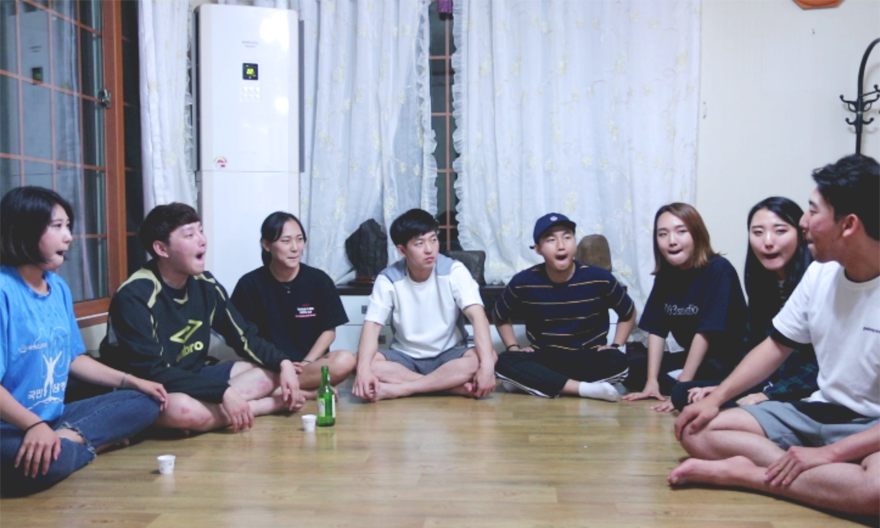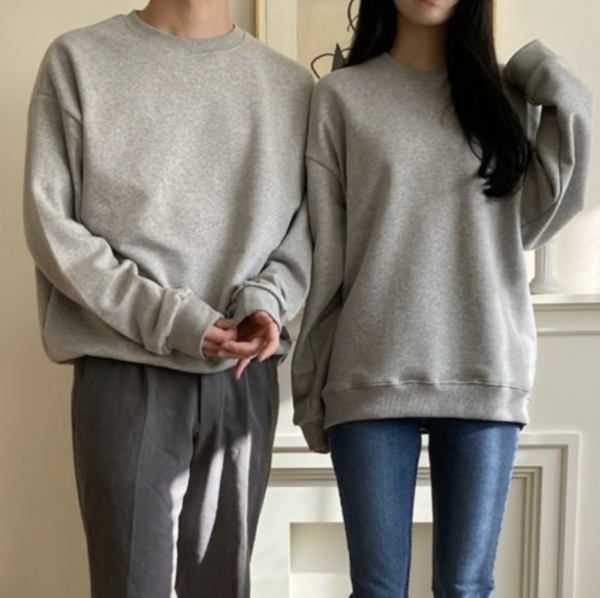University students live remarkably busy lives. After years of navigating meticulously structured schedules, they are finally presented with a newfound sense of freedom. This phase is an opportunity to savor the romance of youth. However, within the limited timeframe, they must also strive to become experts in their chosen fields while simultaneously engaging in career and self-exploration. Amid these dynamic and formative years, when and how do students find time for romance? Join the Sungkyun Times (SKT) as we delve into their stories.
How I Met Your...
- Face to Face
Many college relationships begin naturally through various longstanding offline social gatherings. Korean university culture has uniquely developed the traditions of meetings and gwatings. Meetings, concepts unique to Korea, involve group dates where students match numbers to form pairs, and gwatings refer to group dates held between different departments or majors within the same university. Beyond serving as simple social gatherings, meetings and gwatings play a vital role in expanding students’ social networks, facilitating interaction among individuals from different academic fields and interests. A recent example that sparked media attention was shared by JoongAng Ilbo, where in a liberal arts course titled “The First Button of Love” at Chonnam National University, several students reportedly became couples after going on dates as part of their class presentations. Additionally, Membership Training (MT) and university festivals are essential aspects of college life, playing major roles in fostering student interactions and providing large-scale social platforms. The MT is typically a two-day trip among department or club members, creating opportunities for students to build closer relationships outside of academic settings. Festivals, like Sungkyunkwan University’s Daedongje and ESKARA, are university-wide celebrations that enable extensive social interactions. These events feature unique opportunities, such as bar booths where students can sit with peers from other departments and events where students openly ask for dates, fostering numerous connections. These offline encounters offer college students natural pathways into relationships and have become an integral part of university life.

-Screen to Screen
Advances in technology and changing social norms have rapidly transformed the way college students meet and connect through digital platforms. Tinder, one of the most popular dating apps, has gained widespread popularity among students as a convenient tool for meeting new people, with a simple profile setup and location-based matching system that allows users to easily connect with others nearby. According to a 2024 Tinder demographics report by TechReport, users aged 18-24, including many college students, constitute a significant 38% of its total user base. Additionally, Korean university-exclusive social platforms like Everytime and CampusPick have become valuable for students seeking connections. These apps not only offer algorithms to match users with compatible partners but also provide opportunities for meaningful preliminary conversations, allowing students to build trust before meeting in person. On Everytime, students can communicate anonymously within their school community, fostering a sense of closeness, while CampusPick includes features like matchmaking boards, creating opportunities that often transition into offline meetings. Such platforms go beyond mere introductions, enabling students to connect with individuals they might not encounter otherwise. During the COVID-19 pandemic, some students even developed their own dating apps due to a lack of in-person interactions. For instance, Kyung Hee University students created Kyung Hee-exclusive dating app BeFriends, providing a unique platform amid social restrictions. Ultimately, online platforms have become indispensable for their convenience and efficiency, allowing students to interact with a wider array of people despite the demands of academics and daily life, broadening their social horizons and providing meaningful opportunities to connect with peers from diverse backgrounds.
Love on Campus
-How Do They Love
College students express love and sustain relationships in unique ways amid their academic and personal responsibilities. While couples worldwide show affection differently, Korean students have distinct methods. According to a study by Korea University, An Exploratory Study of International Dating in Korea: Discourses about Race, Korean couples exhibit dynamics that may seem unique from an international perspective. A notable expression among Korean college students is adjusting schedules to spend time with their partner, facilitated by the flexible course registration system. Despite busy lives filled with classes, assignments, and part-time jobs, students make efforts to align their schedules, a crucial element in maintaining relationships. Another common expression is sharing couple items. While matching clothing or accessories among couples is not rare elsewhere, wearing matching rings on specific anniversaries, like the 100th day or one-year mark, is uniquely symbolic in Korea, subtly indicating relationship status. Sogang University’s study, Cultural Study on University Students’ Love Repertoires and Happiness, highlights how such practices reflect Korea’s consumer-driven culture, performing romantic ideals and cultural expressions of affection. Additionally, the socially attentive university environment in Korea influences students’ approaches to public versus private relationships. Many students now use social media to publicly acknowledge their relationships, posting photos with partners on platforms like Instagram to subtly inform friends. However, private relationships still remain common, particularly within departments or clubs, as some students prefer discretion to avoid potential social discomfort. Korean students adapt their expressions of love based on their circumstances, from schedule alignment and symbolic items to public or private displays, all contributing to a distinctive culture of romance that helps stabilize relationships among college students.

-Why Do They Break Up?

As Korean college students take their first steps into society and enjoy newfound freedom, they also encounter various relationship challenges. One common issue is the cost of dating, which many student couples struggle to manage. Since students often juggle academics with part-time work, financial resources are limited. According to a 2024 survey by the Yonsei Institute of Gender Studies, most university students in Korea end their relationships due to realistic circumstances, which can be interpreted as having economic issues in their twenties or social burdens such as looking for jobs. Specifically, among the student couples who responded to the survey, more than 70% of students responded that they feel burdened by dating expenses. Additionally, many male students in their early twenties face the challenge of long-distance relationships due to mandatory military service. Military enlistment is a significant factor in college relationships, as couples may be separated for over a year and a half. To maintain their connection during this period, couples rely on letters, phone calls, and visits during leave, sometimes finding that these efforts lead to a more mature bond. In Korean culture, girlfriends in such relationships are colloquially called Gomshin, reflecting the unique commitment involved. Despite these challenges, college students navigate and grow through their relationships in their own ways. Practical financial solutions, strategies to bridge physical distance, and mature approaches to overcoming social barriers have become vital for students as they confront and manage the trials within their relationships.
On Campus-Talk
However, Kingos, love is not something you learn from a book. Now, with the SKT, meet and hear directly from college students about their experiences with romance.
Anonymous Kingo A
Q1. Tell us about your love life.
A. It has been 200 days with my partner, and each day feels like discovering something new. We first met through a meeting last semester but became a couple after interacting through a course we took together this September. What started by swapping notes which then turned into late-night chats and then something more.
Q2. What are the merits of being a Campus Couple (CC)?
A. It is like having a best friend right here on campus. We get to be a part of each other’s college experiences, which makes it all feel more connected and meaningful.
Anonymous Kingo B
Q1. Tell us about your love life.
A. I just ended a two-year relationship, so it has been a month of reflection. I am learning a lot about myself and realizing that sometimes, love means letting go.
Q2. What are the demerits of being a Campus Couple (CC)?
A. It can feel like everyone knows your business, and it is hard to have any privacy. Plus, having to bump into your ex around campus in the future will not be exactly fun.
Romance is a small yet meaningful part of college life and, at times, one of its greatest challenges. Students navigate the complex balance between academics, career aspirations, and relationships, growing through these experiences. While not every relationship may have a happy ending, the emotions and lessons gained along the way will leave a lasting imprint on their lives. So, may Kingos not fear failure but fully embrace the moments that love offers.
